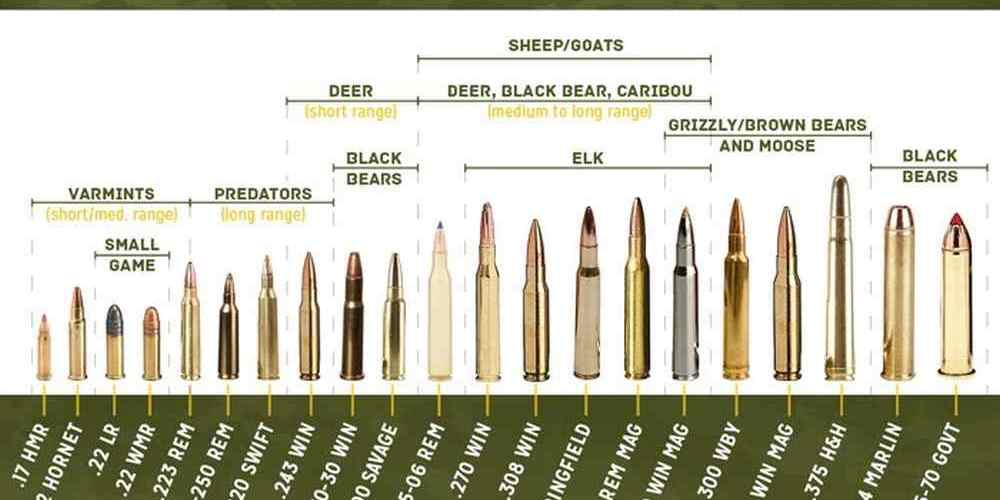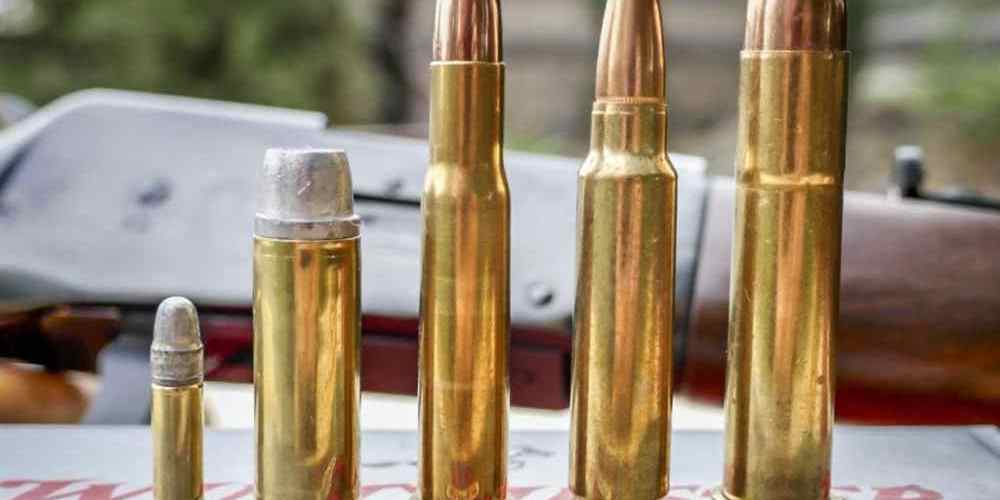Brass vs. Steel Casings: Choosing the Right Ammo for Your Rifle.
Cost
When it comes to choosing rifle ammunition, one of the key decisions you’ll need to make is whether to go with brass or steel casings. Both options have their own set of pros and cons, and understanding these can help you make an informed decision based on your specific needs and preferences.
One of the first factors to consider when comparing brass and steel casings is cost. In general, steel casings tend to be more affordable than brass casings. This is because steel is a cheaper material to produce, making steel-cased ammunition a budget-friendly option for shooters who are looking to save some money.
However, it’s important to keep in mind that while steel casings may be cheaper upfront, they can end up costing you more in the long run. This is because steel casings are not reloadable, meaning that once you’ve fired them, you’ll need to purchase new ammunition. On the other hand, brass casings are reloadable, allowing you to reuse them multiple times before needing to replace them.
In addition to the cost of the casings themselves, it’s also worth considering the cost of the ammunition as a whole. While steel-cased ammunition may be cheaper, it can also be less reliable and accurate than brass-cased ammunition. This can result in more frequent misfires or malfunctions, which can ultimately cost you more in terms of wasted ammunition and potential damage to your rifle.
On the other hand, brass-cased ammunition is known for its reliability and consistency. Brass casings are more durable than steel casings, which can help prevent jams and other issues that can arise during shooting. This can ultimately save you money in the long run by reducing the need for repairs or replacements.
Another factor to consider when comparing the cost of brass and steel casings is the availability of each type of ammunition. While steel-cased ammunition is generally more affordable, it can also be harder to find than brass-cased ammunition. This can be especially true if you’re looking for a specific caliber or brand of ammunition, as steel-cased options may be limited in comparison to brass-cased options.
Ultimately, the decision between brass and steel casings for rifle ammunition will come down to your individual needs and preferences. If you’re looking to save money upfront and don’t mind sacrificing some reliability and accuracy, steel-cased ammunition may be the right choice for you. However, if you prioritize consistency and durability, brass-cased ammunition may be worth the extra cost in the long run.
Regardless of which option you choose, it’s important to consider all of the factors at play when making your decision. By weighing the pros and cons of brass and steel casings for rifle ammunition, you can ensure that you’re getting the best value for your money while also meeting your shooting needs.

Durability
When it comes to choosing rifle ammunition, one of the key decisions you’ll need to make is whether to go with brass or steel casings. Both options have their own set of pros and cons, and understanding the differences between the two can help you make an informed decision.
Let’s start by looking at brass casings. Brass is a popular choice for rifle ammunition due to its durability and reliability. Brass casings are known for their ability to withstand high pressures and temperatures, making them a great option for high-powered rifles. Additionally, brass casings are easy to reload, which can save you money in the long run.
On the other hand, steel casings are often seen as a more budget-friendly option. Steel is cheaper to produce than brass, which can make steel-cased ammunition more affordable for shooters on a budget. However, steel casings are not as durable as brass and may not last as long. Steel casings are also not as easy to reload as brass, which can be a drawback for some shooters.
In terms of durability, brass casings have the upper hand. Brass is a softer metal than steel, which allows it to expand and contract more easily during the firing process. This flexibility helps brass casings maintain their shape and integrity over multiple firings. Steel casings, on the other hand, are more prone to cracking and splitting due to their rigidity.
Another factor to consider when comparing brass and steel casings is corrosion resistance. Brass is naturally resistant to corrosion, which helps protect the ammunition from moisture and other environmental factors. Steel, on the other hand, is more susceptible to rust and corrosion, which can affect the performance and reliability of the ammunition over time.
In terms of overall performance, brass casings are often preferred by experienced shooters for their reliability and consistency. Brass casings tend to provide better accuracy and feeding in most rifles, which can be important for competitive shooting or hunting. Steel casings, while more affordable, may not offer the same level of performance as brass casings.
In conclusion, when it comes to durability, brass casings are the clear winner. Brass casings are known for their strength, reliability, and corrosion resistance, making them a popular choice for rifle ammunition. While steel casings may be more affordable, they are not as durable or reliable as brass casings. Ultimately, the decision between brass and steel casings will depend on your budget, shooting preferences, and intended use for the ammunition.
Performance
When it comes to choosing rifle ammunition, one of the key decisions you’ll need to make is whether to go with brass or steel casings. Both options have their own set of pros and cons that can impact the performance of your rifle. In this article, we’ll take a closer look at the differences between brass and steel casings to help you make an informed decision.
Let’s start by discussing brass casings. Brass is a popular choice for rifle ammunition due to its durability and reliability. Brass casings are known for their ability to expand and contract easily, which helps create a tight seal in the chamber of the rifle. This tight seal can help improve accuracy and consistency when firing rounds.
Another advantage of brass casings is their ability to withstand high pressures. This makes them a great choice for high-powered rifles that require a lot of force to fire. Additionally, brass casings are easy to reload, which can save you money in the long run if you’re a frequent shooter.
On the downside, brass casings tend to be more expensive than steel casings. This can be a significant factor for shooters on a budget who are looking to save money on ammunition. Additionally, brass casings are heavier than steel casings, which can impact the overall weight of your rifle and potentially affect your shooting experience.
Now, let’s turn our attention to steel casings. Steel is a more affordable option for rifle ammunition, making it a popular choice for shooters who are looking to save money. Steel casings are also lighter than brass casings, which can help reduce the overall weight of your rifle and make it easier to carry for extended periods of time.
One of the main drawbacks of steel casings is their lack of flexibility. Steel is not as malleable as brass, which can lead to issues with extraction and ejection in some rifles. This can result in malfunctions and misfires, which can be frustrating for shooters who are looking for a reliable and consistent performance.
Another potential downside of steel casings is their tendency to wear down the rifling in the barrel of the rifle more quickly than brass casings. This can impact the accuracy and longevity of your rifle over time, so it’s important to consider this factor when choosing between brass and steel casings.
In conclusion, both brass and steel casings have their own set of pros and cons that can impact the performance of your rifle. Brass casings are known for their durability and reliability, while steel casings are more affordable and lightweight. Ultimately, the best choice for you will depend on your specific needs and preferences as a shooter. Consider factors such as cost, weight, and reliability when making your decision, and don’t be afraid to experiment with both types of casings to see which one works best for you and your rifle.
Corrosion Resistance
When it comes to choosing rifle ammunition, one important factor to consider is the type of casing material used. Brass and steel are two common options, each with its own set of pros and cons. In this article, we will explore the corrosion resistance of brass and steel casings to help you make an informed decision.
Brass casings are known for their excellent corrosion resistance. Brass is a copper-zinc alloy that is highly resistant to rust and corrosion, making it an ideal choice for rifle ammunition. This resistance to corrosion helps ensure that your ammunition remains in good condition even in harsh environments or when stored for long periods of time.
Steel casings, on the other hand, are not as corrosion-resistant as brass. Steel is prone to rust and corrosion, especially when exposed to moisture or humidity. This can be a significant drawback for steel casings, as rust and corrosion can affect the performance and reliability of your ammunition.
To combat the issue of corrosion, some manufacturers apply a coating to steel casings to help protect them from rust and corrosion. These coatings can vary in effectiveness, with some providing better protection than others. However, even with a coating, steel casings may still be more prone to corrosion than brass casings.
In terms of long-term storage, brass casings are generally a better option than steel. The corrosion resistance of brass helps ensure that your ammunition remains in good condition even when stored for extended periods of time. Steel casings, on the other hand, may require more careful storage to prevent rust and corrosion from affecting the ammunition.
When it comes to shooting in wet or humid conditions, brass casings are also a better choice than steel. The corrosion resistance of brass helps ensure that your ammunition will perform reliably even in adverse weather conditions. Steel casings, on the other hand, may be more prone to rust and corrosion when exposed to moisture, which can affect the performance of your rifle.
In conclusion, when considering the corrosion resistance of brass and steel casings for rifle ammunition, brass is the clear winner. Brass casings offer superior corrosion resistance, making them a more reliable choice for long-term storage and shooting in adverse weather conditions. While steel casings can be coated to help protect them from rust and corrosion, they are still more prone to these issues than brass casings.
Ultimately, the choice between brass and steel casings will depend on your specific needs and preferences. If corrosion resistance is a top priority for you, brass casings are the way to go. However, if you are looking for a more affordable option or don’t mind taking extra precautions to prevent rust and corrosion, steel casings may be a suitable choice. Regardless of your decision, it’s important to consider the pros and cons of each type of casing to ensure that you are making the best choice for your rifle ammunition needs.
Availability
When it comes to choosing rifle ammunition, one of the key decisions you’ll need to make is whether to go with brass or steel casings. Both options have their own set of pros and cons, so it’s important to weigh them carefully before making a decision. In this article, we’ll take a closer look at the availability of brass and steel casings to help you make an informed choice.
Brass casings are the more traditional choice for rifle ammunition, and they are widely available at most gun stores and online retailers. Brass is a durable material that can be reloaded multiple times, making it a cost-effective option for shooters who like to reload their own ammunition. Additionally, brass casings are known for their reliability and consistent performance, which is why they are favored by many experienced shooters.
On the other hand, steel casings are a more affordable alternative to brass. Steel is a cheaper material than brass, which means that steel-cased ammunition is often priced lower than its brass-cased counterparts. This can be a major advantage for shooters who are on a budget or who go through a lot of ammunition in a single shooting session. However, it’s worth noting that steel casings are not as easily reloadable as brass, so they may not be the best choice for shooters who like to reload their own ammo.
In terms of availability, brass casings are generally easier to find than steel casings. Most gun stores and online retailers carry a wide selection of brass-cased ammunition, so you shouldn’t have any trouble finding what you need. Additionally, brass casings are compatible with a wider range of firearms, so you’re more likely to find the right caliber and load for your specific rifle if you opt for brass.
Steel casings, on the other hand, can be a bit more challenging to find. While some gun stores and online retailers do carry steel-cased ammunition, it’s not as widely available as brass. This can be a drawback for shooters who prefer steel casings for their affordability and performance. However, if you’re willing to do some searching, you should be able to find steel-cased ammunition that meets your needs.
In conclusion, both brass and steel casings have their own set of pros and cons when it comes to availability. Brass casings are more widely available and compatible with a wider range of firearms, making them a popular choice among shooters. Steel casings, on the other hand, are more affordable but can be harder to find. Ultimately, the best choice for you will depend on your budget, shooting preferences, and the availability of ammunition in your area.





